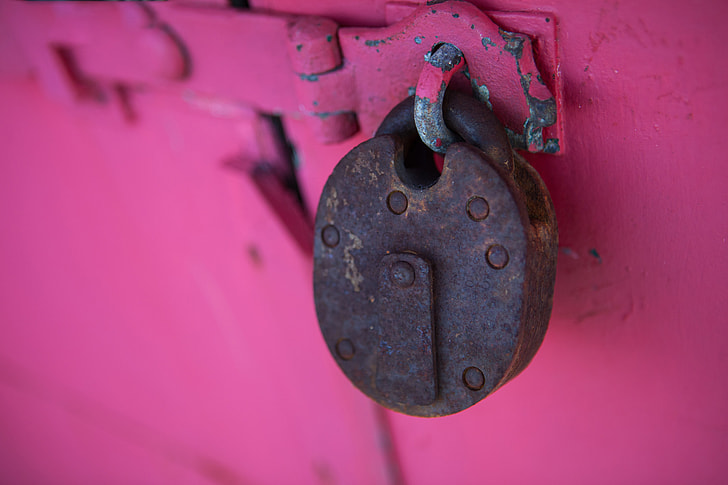Find self-storage near you
Do you need a Removals service?
The Ultimate Guide For Self-Storage Contracts

When you decide to rent a self-storage unit, there are a lot of terms that come into it. Your contract is a legally-binding, written agreement that should consist of different terms such as tenancy, the rights of both lessee and lessor, the agreed-upon payment per month, etc.
This document is considered legitimate evidence in court should there be any disputes. Any disagreements, slights, transgressions, or concerns can all be clarified by having the terms all written out plainly and comprehensively. This means that it should be your priority to peruse your contracts, given that you are going to be kept under lock and key by the legalities of it.
It would be smart for you to take a few hours just to read through your contract before you sign. When you go for a self-storage facility that gives unclear terms, you should consider this as a red flag. You need to know your rights and boundaries, and a contract is the best way to set the parameters of it. It is your responsibility to understand any paperwork that you sign.
Here are some of the terms that you have to take into consideration when you read your contracts.
Regular Payments
First and foremost on your contract should be the exact price of the amount you have to pay for monthly rent. The contract must have in clarity the exact date when rent is due, the amount of your rent, and your security deposit. Moreover, it should be stipulated how exactly the method of payment is going to be. Will you have to pay in cash, use a credit card, or wire the funds directly into their bank accounts? Having this stipulated minimises the chances of lost or unrecorded transactions.
There should also be some terms in terms of contingencies, such as:
What Happens If You Pay Late
The contract must have some terms on what happens if the tenant does not pay on time. This can indicate, for example, that a late fee can be imposed on you. On the other hand, your landlord may also give you a bit of leeway, like 2-3 days before the late fee can be added to your rent.
What Happens If You Cannot Pay Rent Anymore
There may be unforeseen circumstances that might make you unable to pay the rent anymore. The contract must indicate how long you can stay before you take out your items and if you can still get your security deposit.

Use Of Your Units — Items You Can Get To Store
The contract must also have a list of your rights as the tenant. For example, you need to know just what you can store in your self-storage facilities. There are a lot of rules that you might not know until you’re already moving in. A common mistake is not talking about what items you are storing with your landlord. This can lead to some serious violations that might either get you kicked out or face serious fines. Some items are risk hazards and many facilities have a premise liability clause in their contracts.
Change of Contract Terms
There are a lot of terms that might change in your contract. This is why it should be specified in your contract what happens when some terms like payment price change and how you should be notified. A notice should be handed out to tenants and given in due time.
Termination of Contract
There are some instances when the landlord can decide to terminate the contract. For example, if a tenant has been found violating numerous rules and guidelines of the self-storage facility. However, your contract should also state that as a tenant, you have the right to be given a decent amount of time before your lease prematurely ends.
Landlord’s Rights
On the other hand, your landlord should also have his rights. This means that your landlord can ensure different measures to guarantee that his property is also protected from damages. Your contract will also indicate some situations when your landlord can impose on your rented property, ie. for emergencies or repairs. Locking you out is another right that your landlord can do given the specific circumstances.
List of Amenities
Lastly, your contract will have a list of amenities that you are paying for and thus should have. This means that when your landlord does not provide you with the amenities, you can point out that your contract is not being followed.
Contracts are quite messy and complicated, but it is the only document stopping you from being abused by landlords with exorbitant rates and illogical requests. If you are a landlord of a storage facility, it might be perfect for you to check out contract management solution as it will make the contract management process a lot easier. This means that you do not break the rules that you have set for yourself and your tenant while also reminding you of the deadlines that you have set.
Self Storage Tenant Insurance
No matter how secure a storage facility claims to be, they can’t prepare for every eventuality. Unfortunately, in the event of burglary or damage, your goodies are as good as gone.
While some homeowners and renter’s bundles might insure your items even when stored off-site, others will require you to get separate coverage. That’s where Tenant Insurance comes in.
These plans will usually cover your losses in the event of theft, windstorms, fire, earthquakes, building collapse, vandalism, or even pest damage.
However, according to a post by BrokerLink, there are a few limitations to this type of coverage, too.
Here’s Why You Need Tenant Insurance
Although we’re aware that our property might be at risk in a self-storage facility, many of us still don’t consider insurance a priority. Even if you’re only storing your goods for a short period, you still need to invest in the right coverage. Here’s why:
Security Isn’t Infallible

Self-storage facilities will often take several steps to ensure your property is safe. Some even offer services such as silent alarms and access codes. However, regardless of how good the security is, it’s never infallible.
When you’re getting insurance for your storage, check with the broker how your goods will be covered. In some cases, you might need to provide an itemized list of your property before the company will issue your policy.
They Can’t Control the Weather
No one can control the weather, the planet, shifting plates, or guess when a random act of God may strike. Regardless of how secure your self-storage unit is, a wide variety of occurrences, from floods to wildfires, can put your goods at risk.
Other unplanned disasters can include earthquakes, massive storms, and hurricanes. Even a broken pipe can cause a lot of damage to your stored property. It’s best to have insurance, especially if you’re storing valuable or sentimental items in your unit.
Keep in mind that a standard insurance plan might not cover everything. Check with your broker to ensure you’ve got the right policy suited to your needs.
A Storage Company May Require It
Generally, reputable self-storage facilities will offer you an insurance plan before you even sign the paperwork. It protects them against legal action and keeps your property safe at the same time. You might be tempted to turn it down, but the company may well ask you to take your business elsewhere if you do.
By law, self-storage facilities can require you to have a policy, much in the same way a landlord might insist on a tenant insurance plan. If it’s not something you’re interested in, contact the company in advance to find out what their rules and requirements are on this topic.
Some Things Are Irreplaceable
Whether it’s your dad’s prized comic collection or grandad’s purple heart, some things just can’t be replaced. Their sentimental value far exceeds their monetary value, but if they’re lost or stolen, they’ll be gone for good.
Although tenant insurance can’t get these items back if they’re stolen or damaged, they can replace some of them. If not, you can still get compensated for your loss.
Tips To Keep In Mind When You Are Moving Into Self Storage
Check With Your Storage Facility About Items That Are Not Allowed In Their Storage Unit
Before moving your belongings into your chosen self storage space, you must first check with your storage company abut what type of items are not allowed in their storage units. Most self storage facilities have a pretty standard list of nonallowable items (e.g., illegal firearms, live animals, plants, dangerous chemicals, etc.) but it is best to check with your specific storage facility for any special rules they have regarding you putting items into storage.
Make A List Of Everything You’ll Be Storing
This may seem like an obvious one, but it’s important to make a list of everything you’ll be putting into storage. This will not only help you to stay organised, but it will also come in handy if you need to access something from your unit and can’t remember what you packed it in with.
When making your inventory list, remember to be as detailed as possible. Include the name of the item, a brief description, and where it is stored in your storage unit. This will save you a lot of time and frustration later on.
Use Good Quality Cardboard Boxes For Your Belongings
If you are going to be using cardboard boxes to store your belongings in your storage unit, it is important to make sure that you use good-quality boxes. Cheap, flimsy boxes are more likely to break and could damage your belongings.
This is especially true if you are planning to store your belongings for a long period of time. After all, even belongings stored in climate-controlled boxes can be damaged if they are not packed properly.
Here are some tips on Where To Get Moving Boxes.
For seasonal clothing and other garments, you may want to consider using vacuum-sealed plastic bags instead of cardboard boxes. These can help to keep your things clean and dust-free while in storage. The same goes for electronic items like computers, tablets, and TVs.
For large pieces of furniture and other bulky items that you plan on storing for a long time, you may want to invest in some dust sheets and furniture covers. These will help to keep your furniture clean and protected from the elements.
Meanwhile, if you have important documents or files that you need to store, it is best to keep them in a fireproof and waterproof box or safe. Lastly, if you have fragile items that you wish to put in storage, you will want to get protective packing materials like packing paper, packing peanuts, bubble wrap, and many more.
Purchase An Adequate Insurance Policy For Your Belongings In Self Storage
Next, it is crucial that before you move into your storage unit, you must purchase an adequate insurance policy that will cover your belongings in case of any damages or losses.
This is because most self storage facilities do not provide insurance for the items stored in their units. So, if something were to happen to your belongings while they are in storage (e.g., a fire, flooding, theft, etc.), you would not be compensated by the storage facility.
To find the right storage renters insurance policy for your needs, it is best to speak with your homeowners or renters insurance agent. They will be able to help you determine the coverage you need and whether or not your current policy will cover your belongings while they are in storage.
You can also purchase a self storage insurance policy from a third-party insurer. These policies are specifically designed to cover your belongings while they are in storage and can be quite affordable.
Ensure You Are Entrusting Your Personal Belongings With A Safe Storage Facility
When choosing a storage facility for your belongings, it is important to make sure that you are entrusting them with a safe and secure facility. This means that the facility should have security features like CCTV cameras, alarm systems, and on-site security guards.
It is also a good idea to choose a facility that is well-maintained and clean. This will help to ensure that your belongings are protected from the elements and are not subject to any damage while in storage.
Lastly, you should make sure that the facility you choose offers insurance for your belongings. This way, you will be covered in case of any damages or losses that may occur while your belongings are in their care.
Self Storage Facilities After Brexit
The Self-Storage Industry has been considered as one of the industries that would be affected greatly by the impending exit of Britain from the European Union. There is no denying that Brexit will have a heavy impact on the economy of the United Kingdom. While many think that this is quite a reach, the self-storage industry is directly related to the UK Housing Market.
As the leading cause of uncertainty in the UK economy right now, Brexit has pushed many to be in a panicked state. The UK House Market is one of the industries that are expected to be greatly affected, with mortgage funding becoming harder to secure. Even now, many are already deciding to move into cheaper real estate. With unemployment rates threatening to go up with the Brexit deadline, you can expect many UK residents decide to have a cheaper lifestyle. Saving up on valuable resources will be a priority for most of the British population starting April 2019. With so much uncertainty on the future, wasting money just won’t do.
By downsizing and renting out a self-storage facility for their items, many UK residents can save hundreds if not thousands of pounds. Practicality is important if you want to survive the economic crises that Brexit might bring. Downsizing is part of the practical processes that UK residents have to do to not deplete their bank account fast.
If you do not own a house then you would know that rent takes up a huge percentage of your hard-earned salary. This is why many are choosing to live in smaller homes or flats which would obviously require cheaper rent. Moving to a less populated city or town is another method of saving money.
However, the problem here is that most of the space inside our homes are taken up by our stuff. Let’s face it. We all have tons of items that we really don’t need. Many of these stuff are items that have sentimental value to us or are items that has a lot of utility but in the future. This means that we can afford to store them someplace else.
This is where self-storage facilities come in. If you are amenable to living in smaller quarters, then your bank account will thank you a lot. This has driven many to look for self-storage facilities that would fit their needs and within their budget.
Unfortunately, many are still not convinced as they are concerned with the stress of moving. Studies have found that 28 percent would rather pay more than deal with the hassle of moving into a new place. However, they could not be more wrong. Self-storage facilities all across the UK were established all to help its users while they are on the move.
Ready To Move Your Belongings Into Storage?
Are you ready to move your belongings into storage? If so, then you might want to consider hiring professional movers to help you with the process. Hiring professional movers can make the entire experience much smoother and less stressful for you. Here are your options when it comes to hiring professional movers:
A Removal Company
A removal company can provide you with a team of workers who will come to your home and carefully pack up all of your belongings. They will then transport them to their warehouse where they will be stored safely. Removal companies typically charge by the hour, so this is something to keep in mind when budgeting for your move.
Aside from moving house, these companies can also provide you with commercial relocation services, meaning they can help you move your business to a new premises.
Man and Van Services
Man and van services are ideal for smaller moves, or if you only have a few items to move. These services typically involve one man and one van, and you can usually hire them by the hour. This is a great option if you’re on a budget and don’t have a lot of belongings to move.


